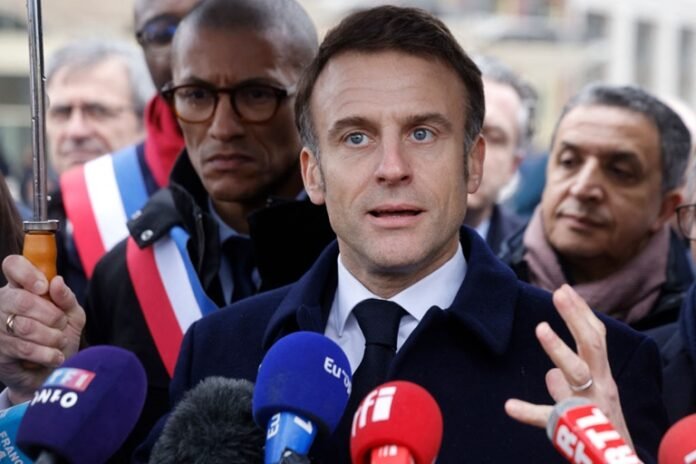
President Macron lauds completion as a milestone in sustainable urban development
Paris, March 2, 2024 – In a momentous ceremony attended by dignitaries including President Emmanuel Macron, the inaugural ceremony for the Paris Olympic Village took place today in northern Paris, marking a significant step towards hosting the upcoming Olympic and Paralympic Games in a sustainable and socially responsible manner.
Chief organiser Tony Estanguet received a symbolic key for the complex, comprising approximately 40 low-rise tower blocks set to accommodate over 14,000 athletes during the Olympics and an additional 9,000 individuals during the Paralympics.
Exceeding the handover target by a day, the completion of this crucial piece of Olympics infrastructure was celebrated by all parties involved, who emphasized its timely delivery and marginal budget overruns.
President Macron, addressing reporters after meeting with workers, commended their dedication, stating they should take pride in their participation in what he termed “the adventure of a century.”
The Paris Olympic Village stands as a testament to the city’s commitment to overcoming the pitfalls that have plagued previous Olympic editions, such as wasteful overspending and extravagant infrastructure projects.
With concerns about climate change at the forefront, the village represents a departure from convention, focusing on sustainable practices including the use of low-carbon concrete, wood structures, and renewable geothermal heating.
“We’ve made a village that’s a showcase, but also a manifesto of what we know how to do best in France today in response to the major questions posed for urbanization in the 21st century,” stated Olympics infrastructure chief Nicolas Ferrand during a conversation with President Macron.
Organizers assert that the village will produce approximately half the carbon emissions over its lifetime compared to equivalents built with standard construction techniques, underscoring its commitment to environmental responsibility.
Located on a site by the river Seine, the Olympic Village is not just a sporting hub but a catalyst for urban regeneration in the economically deprived Paris suburb of Seine-Saint-Denis. This area, which also hosts the national stadium, has long grappled with issues of poverty and crime.
Paris organizers envision the village as a cornerstone of a new “sober” model, promoting the use of existing or temporary infrastructure, recycling, re-use, and innovative low-carbon technologies.
As the single largest new-build Olympics project, the village represents a beacon of hope for the residents of Seine-Saint-Denis and a testament to Paris’s commitment to hosting the Games in a socially, economically, and environmentally sustainable manner.
With the inauguration of the Paris Olympic Village, the city not only prepares to welcome athletes and spectators from around the world but also takes a significant stride towards shaping a more sustainable and inclusive future for urban development.
This article was created using automation technology and was thoroughly edited and fact-checked by one of our editorial staff members